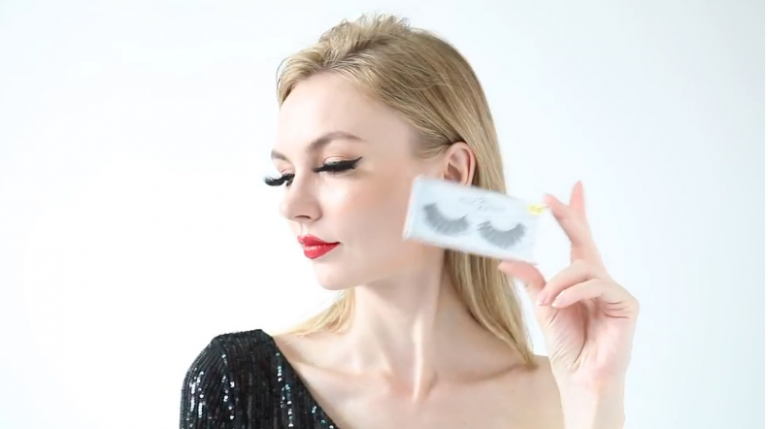Skincare has become an essential aspect of our daily routine, and understanding the ingredients listed on product labels is crucial for making informed choices. In this comprehensive guide, we’ll delve into the intricacies of skincare labels, uncovering the key ingredients that can transform your skincare routine.
Introduction
In a world flooded with skincare products, deciphering labels can be overwhelming. Yet, the secret to effective skincare lies in the ingredients. This guide aims to demystify skincare labels, empowering you to make choices that align with your skin’s needs.
The Basics of Skincare Labels
Understanding the format of skincare product labels
Skincare labels often follow a standardized format, with crucial information presented in a specific order. From product name to expiration date, decoding this information ensures you know exactly what you’re applying to your skin.
Deciphering common terms and symbols
Terms like “non-comedogenic” or symbols indicating cruelty-free status can significantly impact your decision to purchase. We’ll break down these terms, ensuring you’re well-equipped to make conscious choices.
Key Ingredients for Healthy Skin
Vitamins for Radiant Skin
Vitamin C: The Brightening Agent
One of the powerhouses in skincare, Vitamin C boosts collagen production, brightens skin, and protects against environmental damage. Learn how to spot it on labels and harness its benefits.
Vitamin E: Nourishing and Anti-Aging
Vitamin E is a potent antioxidant with anti-aging properties. Discover its role in nourishing the skin and reducing the signs of aging.
Hyaluronic Acid: The Ultimate Hydrator
For hydration that goes beyond the surface, hyaluronic acid is a game-changer. Uncover its moisturizing abilities and how it can benefit all skin types.
Retinol: A Powerful Anti-Wrinkle Ingredient
In the realm of anti-aging, retinol reigns supreme. We’ll explore how this derivative of Vitamin A can diminish fine lines, wrinkles, and even out skin tone.
Antioxidants: Guarding Against Free Radicals
Understanding the role of antioxidants in skincare is crucial. These powerful ingredients combat free radicals, preventing damage and promoting overall skin health.

Ingredients to Avoid
Parabens and Sulfates: Are They Harmful?
Controversial ingredients like parabens and sulfates have stirred debates. We’ll examine the potential risks associated with these substances and whether they should be a cause for concern.
Synthetic Fragrances: The Hidden Culprits
While fragrances may enhance the sensorial experience, synthetic ones can be detrimental to the skin. Learn how to identify and navigate through the world of fragrances.
Alcohol in Skincare: Friend or Foe?
Alcohol is a common ingredient in skincare, but its effects can vary. We’ll explore the different types of alcohol and their impact on different skin types.
Tailoring Skincare to Your Skin Type
Oily Skin: Ingredients to Control Sebum Production
Managing oily skin requires specific ingredients. We’ll guide you through the labels to find products that control sebum production without stripping your skin.
Dry Skin: Hydrating Ingredients for a Radiant Glow
Discover the hydrating ingredients that can transform dry skin into a radiant canvas. Uncover the key players in moisturizing formulations.
Sensitive Skin: Gentle Ingredients to Soothe and Protect
Sensitive skin demands a gentle touch. Learn about ingredients that soothe and protect, minimizing the risk of irritation.
Decoding Buzzwords and Marketing Terms
“Natural” and “Organic”: What Do They Really Mean?
The terms “natural” and “organic” are often used interchangeably but have distinct meanings. We’ll explore the differences and what they imply for your skincare routine.
Hypoallergenic and Dermatologist-Tested: Unraveling the Claims
Labels often boast being hypoallergenic or dermatologist-tested. We’ll scrutinize these claims, helping you understand their significance in the skincare realm.
DIY Skincare: Knowing What to Mix and What to Avoid
Common Ingredients in DIY Skincare
Embarking on DIY skincare? Discover common ingredients and their benefits, but also be aware of potential pitfalls.
Safety Precautions and Potential Pitfalls
While DIY skincare can be fun, it’s essential to understand safety precautions and avoid pitfalls that could harm your skin. We’ll guide you through the do’s and don’ts.
The Evolution of Skincare Ingredients
Traditional vs. Cutting-Edge Ingredients
The beauty industry is ever-evolving. We’ll compare traditional ingredients with cutting-edge ones, exploring how formulations have advanced over the years.
Trending Ingredients in the Skincare Industry
Stay ahead of the curve by uncovering the latest trends in skincare ingredients. From ancient remedies making a comeback to futuristic innovations, we’ve got you covered.
Navigating the World of Clean Beauty
Understanding the Concept of Clean Beauty
Clean beauty has gained traction, but what does it really mean? We’ll delve into the concept, helping you distinguish between genuinely clean products and those riding the trend.
Identifying Truly Clean Products
Not all products labeled as “clean” live up to the claim. Learn how to scrutinize ingredient lists and make informed choices for a truly clean beauty routine.
The Future of Skincare Ingredients
Emerging Ingredients and Technologies
The future of skincare holds exciting prospects. Explore the latest ingredients and technologies set to revolutionize the beauty industry.
Sustainable and Ethical Skincare: A Growing Trend
As consumer awareness grows, so does the demand for sustainable and ethical products. We’ll discuss how this trend is shaping the skincare industry.
Conclusion
In the intricate world of skincare labels, knowledge is power. Armed with an understanding of ingredients, you can make choices that align with your skin’s unique needs. Remember, your skin deserves the best.
FAQs
Are natural ingredients always better for the skin?
The suitability of natural ingredients depends on various factors. While some natural ingredients offer benefits, others may cause irritation. It’s essential to understand your skin’s specific needs and preferences.
How can I tell if a skincare product is suitable for my skin type?
Identifying your skin type is the first step. Look for products formulated for your specific needs—whether you have oily, dry, or sensitive skin. Experiment cautiously, and monitor how your skin responds.
Should I be concerned about the expiration date of skincare products?
Yes, expiration dates matter. Expired products may lose effectiveness or, in some cases, become harmful. Check expiration dates, and if in doubt, it’s safer to replace the product.
Can skincare products with similar ingredients have different effects?
Yes, formulation matters. The concentration of key ingredients, additional components, and the overall formulation can impact a product’s effectiveness. Pay attention to the complete ingredient list for a holistic understanding.
Is it necessary to follow a specific order when applying skincare products?
Yes, the order of application matters. Generally, start with cleanser, followed by toner, treatment products (like serums), moisturizer, and sunscreen during the day. This sequence ensures optimal absorption and benefits.










+ There are no comments
Add yours